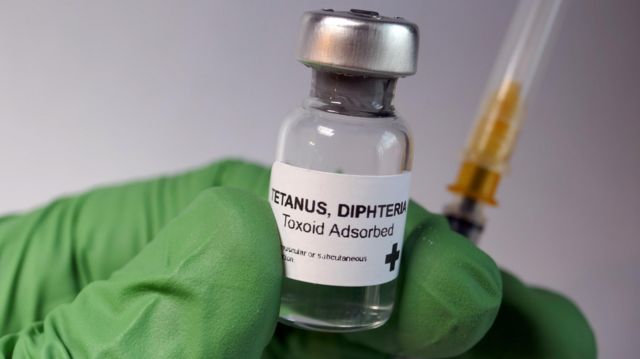Diphtheria, a fatal disease that has killed at least sixty-one (61) individuals in Kano State since it first emerged a few weeks ago, has sparked worries.
According to what is known, diphtheria is a serious bacterial infection that affects the nose, throat, and occasionally the skin and is brought on by the bacterium Corynebacterium species.
Using the theme “Diptheria epidemic in Nigeria: Vaccination Response,” the Nigeria Centre for Disease Control and Prevention (NCDC) warned Nigerians about the viral outbreak in January.
During a webinar hosted by the NCDC on Monday, the state case manager for Kano State, Dr. Salma Suwaid, provided newsmen with an update on the disease’s status since the first record in that state. To date, 783 patients have been admitted, she said.
Read Also: Naira Redesign: SERAP demands Buhari’s to obey Supreme Court order
He stated that 423 were men and 360 were women. The typical length of stay in the hospital for patients, according to Suwaid, a consultant pediatrician, is four days.
“Eighty-three percent of deaths occurred in patients with a longer than three-day symptom onset and an average of 15 admission days,” he said.
“68% of patients have been discharged, 1.66 % have eluded capture, and 12.2 % have passed away.”
Regarding the initial evaluation of patients, she stated that the area designated for triaging is appropriately manned and furnished with the resuscitation tools required.
She added that all healthcare professionals follow safety procedures, suspected cases are recognized, cases are classified according to severity, swabs are taken, and DAT delivery is done just once as early as feasible.
Because to DAT’s horse origin, both a rare but serious anaphylactic reaction and a frequently occurring moderate reaction are possible side effects. As a result, many steps are taken to reduce the dangers. First, DAT must be administered in a hospital setting, Suwaid said.
A stronger monitoring system is required, according to the pediatrician, to enable the early discovery of diseases important to the public health and to stop their spread at the earliest possible stage.
Dr. Adejoke Oladele of the National Primary Health Care Development Agency said during the webinar that children between the ages of two and fourteen made up the bulk of verified cases of diphtheria in the nation.
She continued by saying that in at-risk states, the CDC is reacting with vaccination and routine immunization. Dr. Ifedayo Adetifa, Director-General of the NCDC, also spoke during the event and noted that the majority of verified cases of the virus are either unvaccinated or undervaccinated.
But it’s crucial to record unusual diphtheria cases, he added, so that we may exchange them and use them as a continuing source of information.
Diphtheria is believed to spread swiftly between individuals through direct touch with those who are afflicted, droplets from coughing or sneezing, and contact with contaminated objects and clothing.
Read Also: 2023 election: RTEAN laud military’s neutrality, says BVAS worked magic
Low vaccination rates and a lack of diphtheria antitoxin in the early stages of the pandemic contributed to the continued diphtheria outbreak and its high case fatality rate.
The infection has been identified so far in the states of Kano, Yobe, Lagos, Osun, and Katsina.
Join Television Nigerian Whatsapp Now
Join Television Nigerian Facebook Now
Join Television Nigerian Twitter Now
Join Television Nigerian YouTUbe Now





